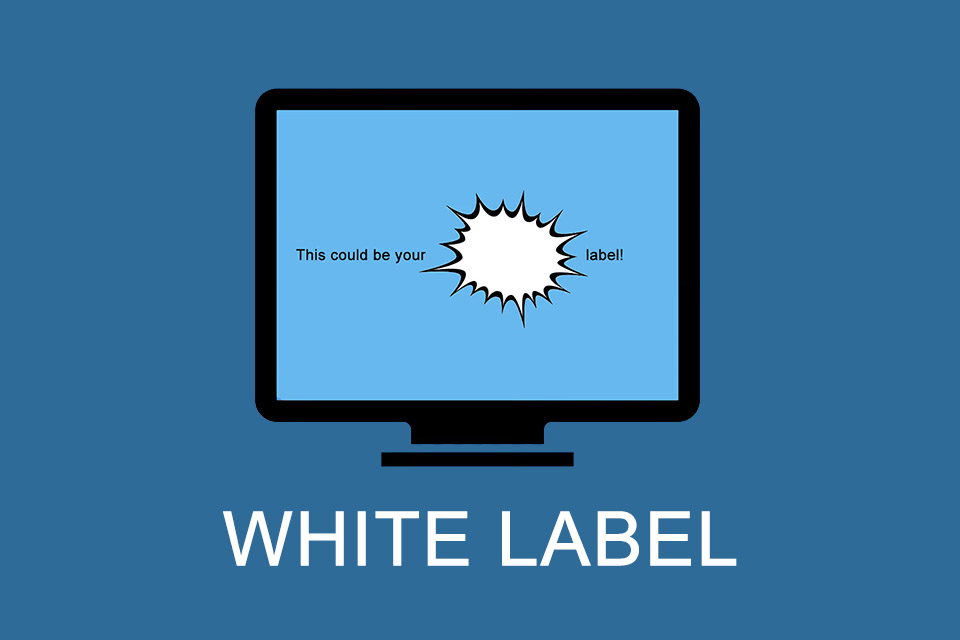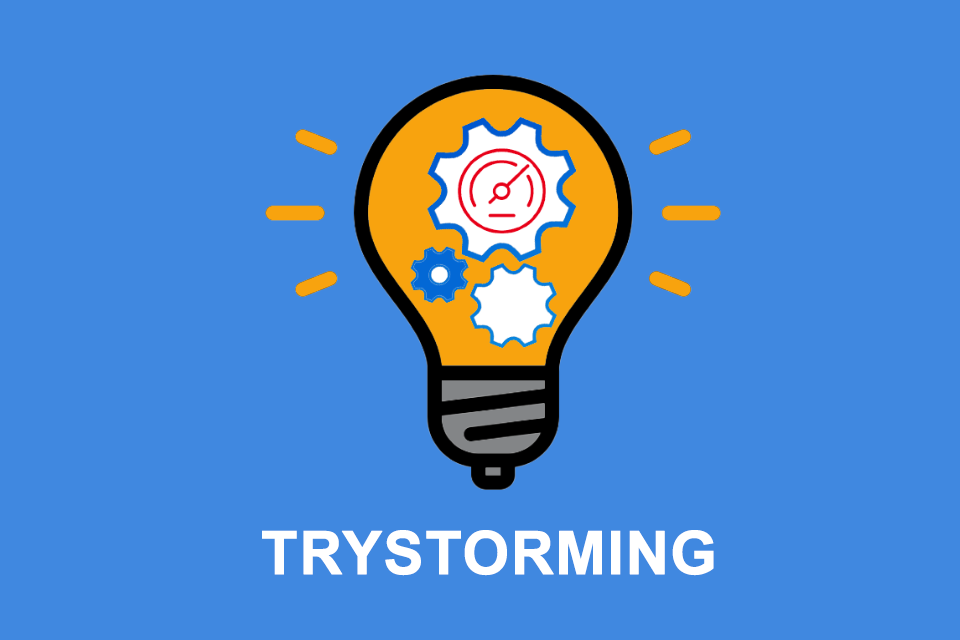What is White Label?
Smartpedia: White label is a business model in which a company markets a product purchased from another company under its own name.
White Label – the marketing of purchased products under one’s own name
White Label has gained importance in recent years, especially in the technology and consumer goods industries. It describes a business model in which a company produces a product or service and sells it to another company, which then markets and sells it under its own brand name.
Ideally, the companies involved benefit from the cooperative model: The manufacturing company achieves higher revenues and benefits from the market position of the reselling company. And the reselling company offers a wider range of products or services without having to invest in research and development. At the same time, it exploits its image to generate additional sales and profits.
White Label examples
There is a whole range of White Label examples. Below you will find a selection:
- Branded grocery products, such as cereals, snacks and private label drinks.
- Software-as-a-Service (SaaS) platforms sold by resellers under a new name.
- Electronics such as televisions, laptops and tablets produced by one manufacturer and sold under a different brand name.
- Web hosting services that are resold under a different brand name.
- Clothing and fashion items produced by manufacturers and sold under private labels.
- Food delivery apps used by restaurants or other food businesses under their own brand name.
- Health and beauty products, such as make-up and skincare products, produced by manufacturers and sold under their own brands.
- Online education and training courses sold under different brand names.
- Financial services, such as credit cards or loans, offered under different brand names.
- Travel booking services, e.g. hotel and flight booking platforms, sold under different brand names.
The importance of the business model is reflected in the fact that this list can certainly be easily continued or added to.
The creation of White Label products or services
Is there a difference between developing a product for a specific market and developing a product for a White Label partner?
Both product manufacturers who address specific markets with their products and White Label manufacturers usually use defined requirements engineering processes to develop high-quality solutions that ideally meet the needs and expectations of customers.
Unlike product development for a target market, when developing a product for a White Label partner, there can be an additional focus on creating a solution that is easily customisable and can be sold under different brand names. This may require a more flexible and modular design approach, where certain elements of the solution can be easily adapted to meet the needs of different partners. In addition, the product may need to meet certain technical and functional requirements that apply to the whole market, rather than being specifically tailored to the needs of a particular niche.
So overall, there is overlap between developing a product for a specific market and developing a product for a White Label partner, but in terms of customisability and branding, there may be specific product requirements that need to be considered in the White Label company’s development process.
Possible strategies for marketing White Label producers
Providers of White Label products or services can use a variety of strategies to market their offering:
- By partnering with companies that complement their offering, providers of White Label products or services can expand their reach and attract new customers.
- Suppliers can offer incentives such as discounts, marketing support or co-branding opportunities to resellers to encourage them to promote their products or services.
- Suppliers can build a good reputation that resonates with potential resellers. This can be underpinned by high-quality products or services, delivery reliability, responsiveness, etc.
- Vendors can provide training and support to resellers so that they can effectively sell and market their White Label products or services. This may include providing product training, marketing materials and ongoing support to help resellers succeed.
- Vendors can offer resellers customisation options to help them tailor their offerings to the specific needs of their customers. In this way, resellers can differentiate themselves from their competitors and offer added value to their customers.
Overall, White Label product or service providers should focus on developing a strong value proposition for their offerings and building strong relationships with their resellers. In this way, they can effectively promote their offerings and ideally build a sustainable business model without end consumers ever knowing of their existence.
Advantages of the White Label business model
White Label or White Labelling offers numerous advantages for the parties involved.
The producer of a White Label product or service benefits from, among other things, a higher sales volume, a wider market reach and lower marketing and distribution costs. By selling its product or service to another company, it may reach a wider audience than it would be able to itself. This can lead to higher sales volumes and higher revenues. Moreover, since the company distributing the product or service is responsible for marketing and distribution, the producer can save on these costs. Finally, the production and further development of a white-label product can provide the opportunity to build long-term partnerships and develop a steady income stream.
A company that uses White Label products or services can quickly and easily expand its offering without having to invest in research and development, reduce costs compared to developing the product or service in-house, and offer its customers a wider range of products or services without having to develop the relevant know-how itself. In addition, the use of White Label products or services can help companies to quickly enter new markets and test new products or services without taking a big risk or making a large investment. Finally, White Label partnerships can offer companies the opportunity to develop new revenue streams and strengthen partnerships with other companies.
White Label risks and limitations
White Label companies that offer products or services sold by another company under its own brand name face several limitations and risks:
- White Label companies run the risk of diluting their own brand by allowing other companies to sell their products or services under a different brand. This can lead to consumer confusion and reduce the perceived value of the original brand.
- White Label companies have limited control over how their products or services are marketed and sold by their affiliates. This can result in products being sold in a way that is not consistent with the values and message of the original brand.
- White Label companies are dependent on their partner companies for sales and revenue, which can be a risk if these companies decide to end the partnership or shift their focus to other products or services.
- White Label companies need to ensure that the products or services they provide to their affiliates meet certain quality standards, as any problems or shortcomings can reflect badly on both companies envolved.
In short, for all the benefits that the White Label business model offers, the risks and limitations should be carefully considered and weighed.
Companies using White Label services and products also face certain risks and limitations:
- Companies have limited control over the quality of the services or products delivered. This can lead to inconsistencies in the partnership and possibly damage the company’s reputation.
- Companies are dependent on their suppliers to meet their requirements. If the supplier has problems, such as delivery or quality issues, this can be detrimental to the company.
- Companies that use White Label services and products may be seen as less innovative or unique than their competitors, as they are essentially reselling products or services that are also offered by other companies.
- Companies may have limited opportunities to customise products or services to their specific needs. This can lead to a lack of differentiation from competitors marketing the same products and services.
- Even if corresponding cooperations seem cheaper at the beginning, companies may pay more in the long run, especially if continuous adaptations, additional support or integration into other systems become necessary.
Overall, companies that make use of corresponding products and services should ensure that they live good partnerships and communicate potentials and threats transparently. It can be advantageous if companies rely on more than one partner.
Impulse to discuss
How important is open and transparent communication when using White Label products and services towards the end user?
Notes:
If you like the article or would like to discuss it, please feel free to share it in your network. And if you have any comments, please do not hesitate to send us a message.
Here you can find a video about What is White Label.
And here you will find supplementary information from Smartpedia:



